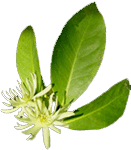Arak

Arak, pronounced raki in Turkey is a Middle Eastern or Mediterranean aniseed flavoured liqueur, similar to the Greek ouzo but more potent. Iran, Syria, Lebanon, Israel, Turkey and Jordan all produce variations of arak. As to the origins of the name arak it is said to mean juice or sweat in Arabic which is most appropriate if you think of the distillate "sweat" condensing to form the "juice" or arak in the condensing recipient. It is basically distilled from grape pomace or molasses.
Traditionally it is distilled in copper alembics using a double distillation process. The first distillation is much the same as one would perform for Portuguese aguardente (see The Portuguese Experience) to obtain a colourless eau de vie. This first distillation has an average alcoholic volume of 45 to 50%. It is during the second distillation that arak acquires its particular distinctive flavour. Aniseed is placed in the copper alembic together with the distillate and allowed to distil very slowly. This slow distillation, together with the controlled ratio of distillate to aniseed is the secret to producing a high quality product of between 69 to 71% alcohol. The Alquitar Still, which is favoured by many due to its longer distillation process, is particularly suitable for this kind of distillation.
Arak is served diluted in water turning it milky-white in colour. This particular characteristic together with its high alcoholic concentration is what lends it the name "Lions milk". It is usually accompanied by snacks or tidbits known as mezza, much like the Spanish tapas or served at barbeques and is sipped alternately with water on the side. It is customary in the Middle East for the local village distiller to throw a party whilst distilling his arak with much drinking accompanied by mezza, of course.
It should be noted that there are many variations of Arak in the Middle East and products like grain, molasses, plums, figs and potatoes may be used for distilling Arak. Also the alcoholic volume after bottling may vary between 53% and 60% with some versions reaching as high as 80%.
In Lebanon, Arak is stored in clay jars, a tradition which dates back to early Phoenician times. Here it is refined and allowed to mature acquiring a mellowness which is peculiar to clay aging. Arak may loose alcoholic volume during the aging process by evaporation through the clay. This so called "angels share" may be as much as 3 to 4%.

